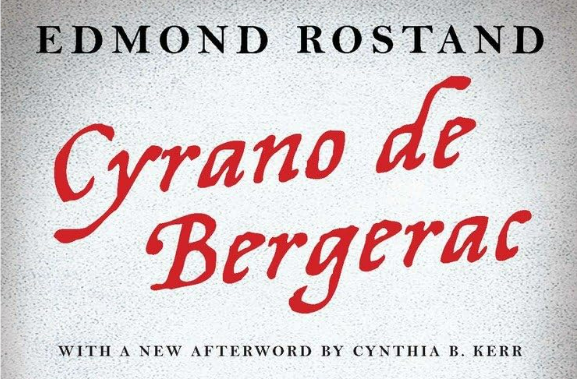Scene 2. VIII.
byScene 2. VIII. unfolds with Cyrano confronting Lord De Guiche in a tense encounter, set against the backdrop of a lively gathering of cadets who are eating and drinking. Cyrano’s sharp words toward De Guiche immediately ignite the exchange, but before the tension escalates further, a call for porters interrupts, signaling the imminent departure of Lord De Guiche. Despite the underlying hostility, De Guiche remains composed, even smiling, and casually brings up the subject of Don Quixote, suggesting that Cyrano should read the chapter on windmills. Cyrano, ever quick-witted, acknowledges his familiarity with the story and expresses admiration for the knight-errant. De Guiche, however, cryptically warns Cyrano to understand the implications of battling against windmills, implying that such a fight could lead to ruin. Cyrano, ever defiant, counters by suggesting that challenging windmills could lead to greatness, perhaps even to an ascent to the stars, highlighting his view of struggle and ideals.
As De Guiche exits the scene, the cadets begin to disperse, leaving Cyrano and Le Bret among the remaining few. Cyrano, with his usual wit, continues to jest with those who depart without acknowledging him, turning the situation into one of light mockery. Le Bret, visibly distressed, returns to Cyrano, expressing concern over his friend’s tendency to escalate conflicts unnecessarily, fearing that Cyrano might be squandering the goodwill of fate. Cyrano, with a mix of humor and sincerity, admits to his inclination to exaggerate and create dramatic situations. However, he explains that his actions are not born from folly but are guided by his principles, as he believes in setting an example and standing firm in his beliefs, regardless of the consequences. The conversation becomes a window into Cyrano’s complex character, revealing his internal struggle between personal pride and the sacrifices required to uphold his ideals.
This chapter highlights themes of pride, principle, and the consequences of adhering to one’s beliefs, often at great personal cost. Cyrano’s defiance of societal pressures and norms is a central motif, as he continues to navigate the fine line between his desire for honor and the reality of the world around him. His jesting with the cadets and his continued willingness to escalate situations demonstrate his refusal to conform to the expectations placed upon him, even when it leads to conflict. Le Bret’s concern for Cyrano’s actions serves as a foil to Cyrano’s unyielding stance, showing how those around him struggle to understand the motivations that drive his choices. The references to Don Quixote and windmills not only serve as symbolic metaphors for Cyrano’s personal battles but also reflect his belief that ideals, no matter how lofty, should be pursued without compromise, even if they result in failure or isolation.
The literary reference to Don Quixote deepens the scene’s exploration of chivalric ideals, which Cyrano both embodies and challenges. By invoking the image of the windmill, De Guiche hints at the absurdity of Cyrano’s actions in defying the status quo, much as Don Quixote’s quest to fight windmills is often viewed as misguided. However, Cyrano’s response reveals his deep belief in the worthiness of such struggles, even if they are doomed to fail. This interplay between idealism and realism adds layers to Cyrano’s character, portraying him as a man whose convictions shape his actions, no matter the consequences. His sense of honor and his desire to make a stand for what he believes in, even when faced with ridicule or opposition, make him a tragic but admirable figure.
The tension between Cyrano’s pride and the pragmatic concerns of those around him is central to the themes of this chapter. Le Bret’s concerns are valid; Cyrano’s actions do carry the potential to alienate him from those who might otherwise support him. Yet, Cyrano’s refusal to back down in the face of such challenges demonstrates his commitment to maintaining his integrity and his belief that one’s personal honor cannot be compromised, even for the sake of friendship or acceptance. This moral absolutism adds depth to Cyrano’s character, making him both a tragic hero and a symbol of unwavering principle. Through his interactions with De Guiche, Le Bret, and the cadets, Cyrano’s complex personality is revealed, showing how his ideals shape his relationships and, ultimately, his fate.
In conclusion, Scene 2. VIII. masterfully blends humor, tension, and philosophical musings on pride and principle, providing further insight into Cyrano’s complex character. The use of Don Quixote as a reference underscores the theme of idealism versus realism, highlighting Cyrano’s unwavering commitment to his own ideals, even in the face of overwhelming opposition. This chapter also delves into the emotional and moral cost of living according to one’s principles, as Cyrano’s interactions with those around him demonstrate the sacrifices required to uphold honor and pride in a world that often values conformity over individuality. Through these interactions, the play continues to explore the tension between personal values and societal expectations, making Cyrano a character whose strength and vulnerability resonate deeply with the audience.


